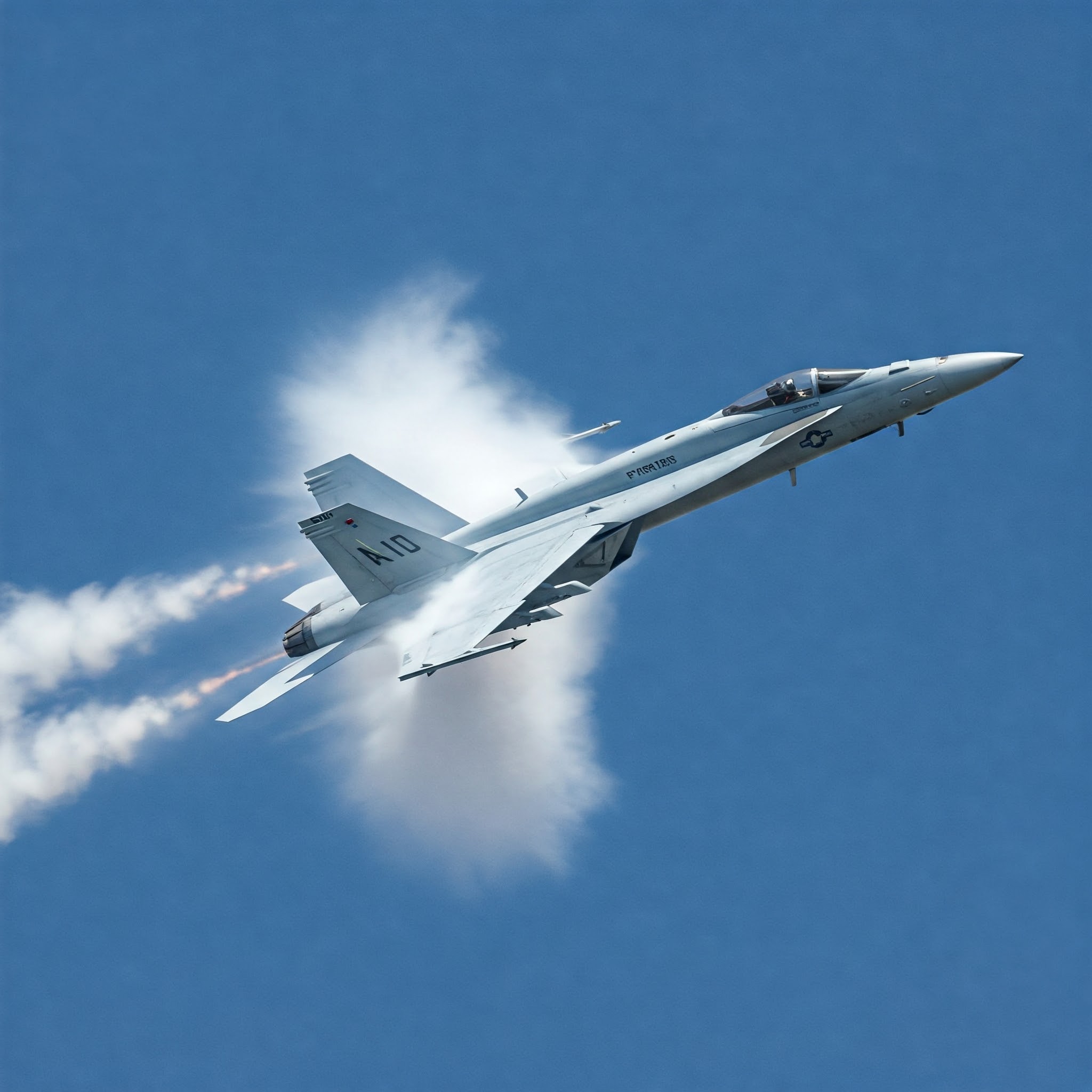Mach Number
Mach number formula |
||
|
\( Ma \;=\; \dfrac{ v }{ a } \) (Mach Number) \( v \;=\; Ma \cdot a \) \( a \;=\; \dfrac{ v }{ Ma } \) |
||
| Symbol | English | Metric |
| \( Ma \) = Mach Number | \(dimensionless\) | \(dimensionless\) |
| \( v \) = Velocity (Speed of Object) | \(ft \;/\; sec\) | \(m \;/\; s\) |
| \( a \) = Speed of Sound | \(ft \;/\; sec\) | \(m \;/\; s\) |

Mach number, abbreviated as \(Ma\) or \(M\), a dimensionless number, is the ratio of the velocity of flow to the velocity of sound. The speed of sound in this equation is dependent on the density of the medium that the sound is traveling through. For example, the speed of sound through a solid object like a railroad track is much faster than the speed of sound through air at standard conditions. The Mach number provides a measure of how fast an object is traveling compared to the speed at which pressure waves (sound waves) propagate through the medium. It is often used in aerodynamics, aerospace engineering, and fluid dynamics to characterize the flow behavior and compressibility effects.
Mach Number Conversion |
||
| Multiply | By | To Get |
| 9.646x107 | feet per day | |
| 4.0192x105 | feet per hour | |
| 66,986 | feet per minute, fpm | |
| 1,116 | feet per second, fps | |
| 1,225 | kilometers per hour | |
| 2.94x107 | meters per day | |
| 1.225x106 | meters per hour | |
| 20,417 | meters per minute | |
| 340.29 | meters per second | |
| 761 | miles per hour, mph | |

